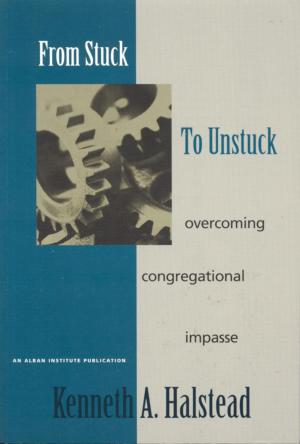Musical Exodus
Al-Andalus and Its Jewish Diasporas
Nonfiction, Entertainment, Music, Theory & Criticism, Ethnomusicology, History & Criticism, Reference| Author: | Ruth F. Davis | ISBN: | 9780810881761 |
| Publisher: | Rowman & Littlefield Publishers | Publication: | September 17, 2015 |
| Imprint: | Rowman & Littlefield Publishers | Language: | English |
| Author: | Ruth F. Davis |
| ISBN: | 9780810881761 |
| Publisher: | Rowman & Littlefield Publishers |
| Publication: | September 17, 2015 |
| Imprint: | Rowman & Littlefield Publishers |
| Language: | English |
For nearly eight centuries — from the Muslim conquest of Spain in 711 to the final expulsion of the Jews in 1492 — Muslims, Jews and Christians shared a common Andalusian culture under alternating Muslim and Christian rule. Following their expulsion, the Spanish and Arabic- speaking Jews joined pre-existing diasporic communities and established new ones across the Mediterranean and beyond. In the twentieth century, radical social and political upheavals in the former Ottoman and European-occupied territories led to the mass exodus of Jews from Turkey and the Arab Mediterranean, with the majority settling in Israel.
Following a trajectory from medieval Al-Andalus to present-day Israel via North Africa, Italy, Turkey and Syria, pausing for perspectives from Enlightenment Europe, Musical Exodus: Al-Andalus and its Jewish Diasporas tells of diverse song and instrumental traditions born of the multiple musical encounters between Jews and their Muslim and Christian neighbors in different Mediterranean diasporas, and the revival and renewal of those traditions in present-day Israel. In this collection of essays from Philip V. Bohlman, Daniel Jütte, Tony Langlois, Piergabriele Mancuso, John O’Connell, Vanessa Paloma, Carmel Raz, Dwight Reynolds, Edwin Seroussi, and Jonathan Shannon, with opening and closing contributions by Ruth F. Davis and Stephen Blum, distinguished ethnomusicologists, cultural historians, linguists and performers explore from multidisciplinary perspectives the complex and diverse processes and conditions of intercultural and intracultural musical encounters. The authors consider how musical traditions acquired new functions and meanings in different social, political and diasporic contexts; explore the historical role of Jewish musicians as cultural intermediaries between the different faith communities; and examine how music is implicated in projects of remembering and forgetting as societies come to terms with mass exodus by reconstructing their narratives of the past.
The essays in Musical Exodus: Al-Andalus and its Jewish Diasporas extend beyond the music of medieval Iberia and its Mediterranean Jewish diasporas to wider aspects of Jewish-Christian and Jewish-Muslim relations. The authors offer new perspectives on theories of musical interaction, hybridization, and the cultural meaning of musical expression in diasporic and minority communities. The essays address how music is implicated in constructions of ethnicity and nationhood and of myth and history, while also examining the resurgence of Al-Andalus as a symbol in musical projects that claim to promote cross-cultural understanding and peace. The diverse scholarship in Musical Exodus makes a vital contribution to scholars of music and European and Jewish history.
For nearly eight centuries — from the Muslim conquest of Spain in 711 to the final expulsion of the Jews in 1492 — Muslims, Jews and Christians shared a common Andalusian culture under alternating Muslim and Christian rule. Following their expulsion, the Spanish and Arabic- speaking Jews joined pre-existing diasporic communities and established new ones across the Mediterranean and beyond. In the twentieth century, radical social and political upheavals in the former Ottoman and European-occupied territories led to the mass exodus of Jews from Turkey and the Arab Mediterranean, with the majority settling in Israel.
Following a trajectory from medieval Al-Andalus to present-day Israel via North Africa, Italy, Turkey and Syria, pausing for perspectives from Enlightenment Europe, Musical Exodus: Al-Andalus and its Jewish Diasporas tells of diverse song and instrumental traditions born of the multiple musical encounters between Jews and their Muslim and Christian neighbors in different Mediterranean diasporas, and the revival and renewal of those traditions in present-day Israel. In this collection of essays from Philip V. Bohlman, Daniel Jütte, Tony Langlois, Piergabriele Mancuso, John O’Connell, Vanessa Paloma, Carmel Raz, Dwight Reynolds, Edwin Seroussi, and Jonathan Shannon, with opening and closing contributions by Ruth F. Davis and Stephen Blum, distinguished ethnomusicologists, cultural historians, linguists and performers explore from multidisciplinary perspectives the complex and diverse processes and conditions of intercultural and intracultural musical encounters. The authors consider how musical traditions acquired new functions and meanings in different social, political and diasporic contexts; explore the historical role of Jewish musicians as cultural intermediaries between the different faith communities; and examine how music is implicated in projects of remembering and forgetting as societies come to terms with mass exodus by reconstructing their narratives of the past.
The essays in Musical Exodus: Al-Andalus and its Jewish Diasporas extend beyond the music of medieval Iberia and its Mediterranean Jewish diasporas to wider aspects of Jewish-Christian and Jewish-Muslim relations. The authors offer new perspectives on theories of musical interaction, hybridization, and the cultural meaning of musical expression in diasporic and minority communities. The essays address how music is implicated in constructions of ethnicity and nationhood and of myth and history, while also examining the resurgence of Al-Andalus as a symbol in musical projects that claim to promote cross-cultural understanding and peace. The diverse scholarship in Musical Exodus makes a vital contribution to scholars of music and European and Jewish history.















